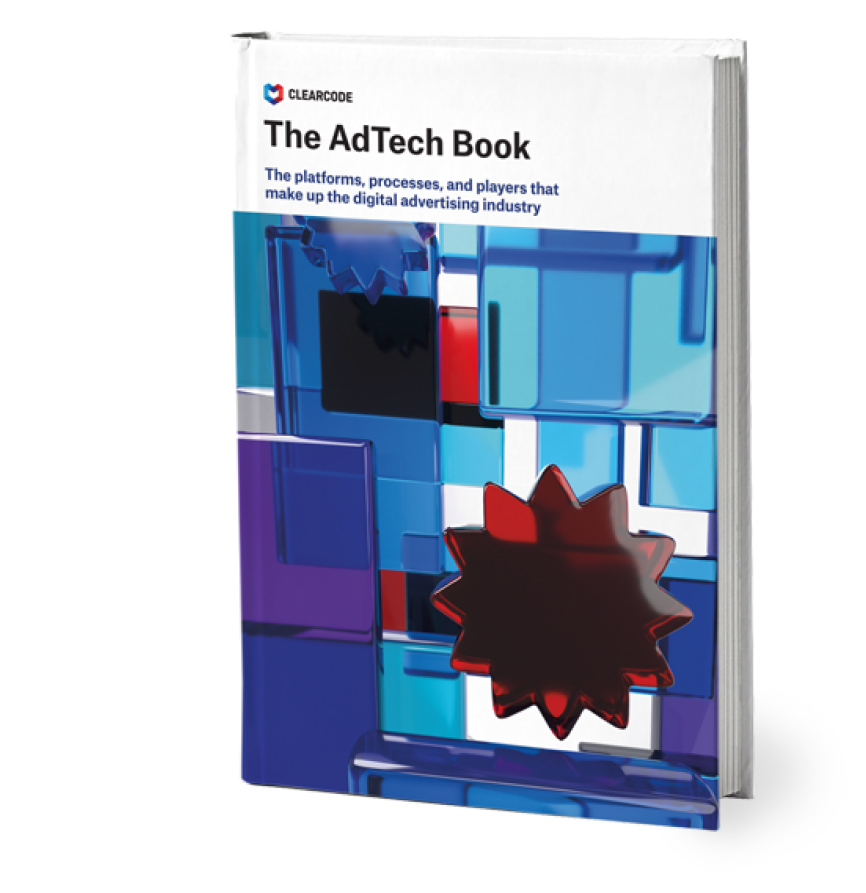A lot happened in AdTech in 2019, and while there were a number of big one-off events, such as Amazon’s acquisition of Sizmek and the introduction of apps-ads.txt, there were a few topics that consistently made headlines in 2019, and will no doubt continue in 2020.
Below are 3 main themes of AdTech in 2019 that will continue into 2020.
Privacy
I think everyone in AdTech can agree that this topic dominated the headlines in 2019.
Privacy in AdTech is not only about the GDPR; it extends to areas like contextual targeting and the decline of third-party cookies because of privacy settings in web browsers like Safari and Firefox.
Let’s recap the main privacy stories.
The UK’s Information Commissioner’s Office (ICO)
The ICO released a report in June 2019 that using legitimate interest as a legal basis for processing personal data in real-time bidding (RTB) auctions is impossible, stating that the legal basis that companies should use is explicit and voluntary consent.
The kicker here is that the IAB’s Transparency and Consent Framework (TCF) and Google’s Authorized Buyers framework, which are tools used to collect consent, don’t provide free and informed consent in the ICO’s view.
The ICO also said that when agencies and publishers sign contracts with their AdTech partners, they can’t shift the responsibility of providing adequate data protection to these data processors (i.e. AdTech companies). Data controllers (e.g. agencies and publishers) need to do their own checks to make sure their AdTech partners aren’t leaking any of their personal data in the ecosystem.
Read the full ICO report here.
The Court of Justice of the European Union (CJEU)
In October 2019, the CJEU ruled that pre-ticked consent boxes, as well as assumed and implied consent, aren’t valid under the EU laws, such as the GDPR.
The ruling came as part of an investigation from a German court into a lottery website, Planet49, which had presented users wanting to take part in a sweepstake with a pre-ticked consent box.
The German court sought clarification from the CJEU on this matter, which they subsequently ruled on.
This wasn’t necessary anything new as the GDPR states that consent must be freely given and can’t be implied, but the CJEU’s ruling further cemented the EU’s position on proper consent and forced publishers to reassess whether their current consent collection policies and processes are valid or not.
GDPR Investigations and Fines
If last year was the year of the GDPR, then 2019 was the year of GDPR fines, at least the beginning of them.
This we saw a number of AdTech companies investigated and some slapped with fines for not complying with the GDPR.
The most notable ones include:
- Vectaury, a French-based mobile demand-side platform (DSP), was investigated by the French data protection authority CNIL.
- Google was fined €50 from CNIL for a lack of transparency surrounding data usage and invalid consent collection mechanisms.
- The Irish DPA opened investigations into multiple advertising companies, including Facebook, Google, and Quantcast.
Safari’s ITP and Firefox’s ETP
In 2019, the AdTech industry saw popular web browsers like Safari and Firefox tighten the screws on their user privacy settings.
Safari released a number of new versions of their Intelligent Tracking Prevention (ITP) feature in 2019, which included:
- A 7-day limit on cookies created via JavaScript’s Document.cookie API — this is how most cookies from AdTech and MarTech companies are created.
- A 1-day limits on tracking cookies set via link decoration — this is often used by AdTech companies to pass click and user IDs from one source to another, e.g. from an ad to a landing page, and identify users.
- A 7-day limit on non-cookie data (e.g. local storage) — storing data in a web browser’s local storage is a new technique created by some AdTech and MarTech companies as a workaround to the limits on cookies mentioned above.
- A reduction in referrer information in URLs — this impacts measurement and attribution.
Firefox also strengthened their Enhanced Tracking Protection (RTP) feature in June 2019 by blocking cross-site tracking cookies (the ones used by AdTech companies) by default for new installs of Firefox. Existing Firefox installs received the update a few months later.
Both Safari’s ITP and Firefox’s ETP have a big impact on the performance, reach, and measurement of online advertising campaigns.
Because both web browsers block third-party cookies be default, AdTech companies aren’t able to identify users as they move around the web and display ads to them based on their behavior and interests, which is how online advertising has worked for close to two decades.
This limitation means advertisers aren’t able to tell whether a user on a publisher’s website matches their target audience, resulting in poor campaign performance for advertisers and lower ad revenue for publishers.
Identity
In an effort to reduce the issues surrounding cookie syncing, a number of ID solutions have been proposed over the years.
In 2019, we saw a number of articles published that covered various angles of the identity topic:
- 2019 will be the year the ad tech ecosystem solves its identity crisis – MarTech Today
- Index Exchange’s Mike O’Sullivan Discusses Identity Solutions in the Post-ITP Landscape – ExchangeWire trader talk TV
- The Three Dimensions of Identity – ExchangeWire
- Know your options: Identity resolution beyond the walled gardens – MarTech Today
- Proprietary Universal ID Efforts Exacerbate An Already Fragmented System – AdExchanger
Although these solutions are aiming to address some common problems in AdTech, they all face a number of challenges of their own:
- Most of the ID solutions are based on third-party cookies. As mentioned above under the Privacy section, third-party cookies are blocked by default in Safari and Firefox, meaning they won’t work in those browsers.
- Getting AdTech companies to adopt these ID solutions is key, and even though AdTech vendors can adopt multiple ID solutions, there are some concerns around using ID solutions provided by existing AdTech vendors (e.g. the Trade Desk), with some folks in the industry preferring to use an independent and neutral solution (e.g. DigiTrust and ID5).
Streaming Video Advertising (OTT and CTV)
As the decline of third-party cookies in web browsers continues, other advertising opportunities increase. And in 2019, there was a lot of movement in the over-the-top (OTT) and connected TV (CTV) industry, signaling new opportunities for brands and AdTech vendors.
Here are some highlights:
- In March 2019, Disney acquired 21st Century Fox. This gave Disney access to a movie studio, loads of movies and TV shows, various TV networks, and increased their stake in Hulu from 30% to 60%.
- Disney launched their streaming service Disney+ in November 2019, which currently is a paid and ad-free subscription service.
- Apple launched Apple TV+ in November, adding yet another video streaming service to the market.
- Roku acquired dataxu (a DSP), further expanding Roku’s advertising solutions.
Despite all the news stories, advertising in the OTT and CTV world isn’t as advanced as the display advertising world. There are still some issues that need to be resolved around targeting, measurement, and automation of the buying and selling of media.








